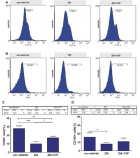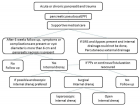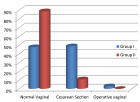Abstract
Research Article
The clinicopathological correlates of Cystoisosporiasis in immunocompetent, immunocompromised and HIV-infected/AIDS patients, but neglected in SARS-COV-2/COVID-19 patients?
Chrysanthus Chukwuma Sr*
Published: 20 January, 2021 | Volume 4 - Issue 1 | Pages: 001-004
Cystoisosporiasis (formerly isosporiasis) is caused by Cystoisospora belli (erstwhile named Isospora belli) is encountered globally, particularly in tropical and subtropical regions. Cystoisosporiasis is a human intestinal disease whose etiology is the parasite Cystoisospora belli with infection frequent in immunocompromised subjects, principally HIV-infected and AIDS patients. This coccidium parasite infects the epithelial cells and lining of the villi of the small and large intestines. C. belli is the least frequent of the three intestinal coccidia, viz: Cryptosporidium, microsporidium and C. belli which perturb humans. The clinical presentation of cystoisosporiasis gives a semblance of inflammatory bowel disease and irritable bowel syndrome, as well as other gastrointestinal symptoms, nausea, vomiting and diarhoea found in COVID-19, AIDS and HIV-infected patients. Research has not presented comorbid features of COVID-19 and cystoisosporiasis. The oocytes of C. belli are visualizable microscopically on wet mounts via bright-field, differential interference contrast (DIC) and epifluorescence. Trimethoprin sulfamethoxazole constitute the normal treatment of choice. C. belli,HIV-infected/AIDS and COVID-19 patients have clinicopathological correlates necessary to elucidate comorbidities and mechanisms of the diseases.
Read Full Article HTML DOI: 10.29328/journal.ijcmbt.1001018 Cite this Article Read Full Article PDF
Keywords:
Cystoisospora belli; HIV; AIDS; Inflammatory bowel syndrome; Diarrhoea
References
- Woodcock HM. Notes on protozoan parasites in the excreta. BMJ. 1915; 2: 709.
- Minnaganti VR, Talavera F, Kong JW, Bronze MS, Lessnau KD, et al. Cystoisosporiasis: clinical presentation. Medscape. 2018. https://emedicine.medscape.com/article/219776-clinical
- Pape JW, Johnson WD Jr. Isospora belli infections. Prog Clin Parasitol. 1991; 2: 119-127. PubMed: https://pubmed.ncbi.nlm.nih.gov/1893117/
- Miao YM, Gazzard BG. Management of protozoal diarrhoea in HIV disease. HIV Med. 2000; 1: 194-199. PubMed: https://pubmed.ncbi.nlm.nih.gov/11737348/
- Chukwuma Sr C. Cryptosporidium: Still a public health problem: A review. Niger Med J. 1996; 30: 6-10.
- Chukwuma Sr C. Cryptosporidium: Publoc health problems and environmental indicators. Austin Med Sci. 2019; 4: 1036. ams-v4-id1036.pdf
- Chukwuma Sr C. Microsporidium in AIDS patients: A perspective. East Afr Med J. 1996; 73: 72-75. PubMed: https://pubmed.ncbi.nlm.nih.gov/8625869/
- Trier JS, Moxey PC, Schimmel EM, Robles E. Chronic intestinal coccidiosis in maN, intestinal morphology and response to treatment. Gastroenterology. 1974; 66: 923-935. PubMed: https://pubmed.ncbi.nlm.nih.gov/4826994/
- Benator DA, French AL, Beaudet LM, Levy CS, Orenstein JM. Isospora belli infection associated with acalculous cholecystitis in a patient with AIDS. Am Int Med. 1994; 121: 663-664. PubMed: https://pubmed.ncbi.nlm.nih.gov/7944075/
- Velasquez JN, Carnevale S, Mariane M, Kuo LH, Caballero A, et al. Isosporosis and unizoite tissue cysts in patients with acquired immunodeficiency syndrome. Hum Pathol. 2001: 32: 500-505. PubMed: https://pubmed.ncbi.nlm.nih.gov/11381368/
- Lindsay DS, Dubey JP, Toivio-Kinnucan MA, Michiels JF, Blagburn BL. Examination of extra-intestinal tissue cysts of Isospora belli. J Parasitol. 1997; 83: 620-625. PubMed: https://pubmed.ncbi.nlm.nih.gov/9267401/
- Lindsay DS, Weiss LM. Isospora belli. Antimicrobe. 2017. www.antimicrobe.org/b04rev.asp
- Marcos LA, Gotuzzo E. Intestinal protozoan infections in the immunocompromised host. Curr Opin Infect Dis. 2013; 26: 295-301. PubMed: https://pubmed.ncbi.nlm.nih.gov/23806893/
- Wang ZD, Liu Q, Liu HH, Li S, Li Z, et al. Prevalence of Cryptosporidium, microsporidia and isospora infection in HIV-infected people: a global systematic review and meta-analysis. Parasites Vectors. 2018; 11: 28. PubMed: https://pubmed.ncbi.nlm.nih.gov/29316950/
- Shimelis T, Tassachew Y, Lambiyo T. Cryptosporidium and other intestinal parasitic infections among HIV patients in southern Ethiopia: significance of improved HIV-related care. Parasit Vectors. 2016; 9: 270. PubMed: https://www.ncbi.nlm.nih.gov/pmc/articles/PMC4862162/
- Chukwuma Sr C. Ecological analysis of the COVID-19 pandemic for restoration and sustainability. Research and Advancesin Pharmacy and Life Sciences. 2020; 3.
- Logan C, Beadsworth MB, Beeching NJ. HIV and diarrhoea. What is new? Curr Opin Infect Dis. 2016; 29: 486-494. PubMed: https://pubmed.ncbi.nlm.nih.gov/27472290/
- Taye B, Desta K, Ejigu S, Dori GU. The magnitude and risk factors of intestinal parasitic infection in relation to human immunodeficiency virus infection and immune status, at ALERT Hospital, Addis Ababa, Etiopia. Parasitol Int. 2014; 63: 550-556. PubMed: https://pubmed.ncbi.nlm.nih.gov/24603288/
- Goodgame RW. Understanding intestinal spore-forming protozoa: Cryptosporidia, microsporidia, isospora, and cyclospora. Ann Intern Med. 1996; 124: 429-441. PubMed: https://pubmed.ncbi.nlm.nih.gov/8554253/
- Kizilbash QF, Horvath L. Diarrhea in a patient with pulmonary tuberculosis. Gastroenterology. 2016; 151: e12-13. PubMed: https://pubmed.ncbi.nlm.nih.gov/27591425/
- Batista FS, L de Souza Miranda, MB de Oliveira Silva, Lafontaine R, Taborda M, et al. Chronic Cystoisospora belli infection in an HIV/AIDS patient treated at the specialized assistance service in Porto Velho County - Rondonia. Rev Soc Bras Med Trop. 2019; 52: e20180204. PubMed: https://pubmed.ncbi.nlm.nih.gov/31141043/
- Tiryaki TO, Anil KU, Buyuk M, Yildirim AY, Atasoy A, et al. Prolonged, severe watery diarrhea in long-term myeloma survivor: An unforeseen infection with Isospora belli. Turk J Haematol. 2020; 10: 28. PubMed: https://pubmed.ncbi.nlm.nih.gov/33112100/
- Fazio R, Waintraub D, Rahmani R, Hajdu C, Park JS. 1256 Cystoisospora belli infection of the gallbladder: More common than you may think. Am J Gastroenterol. 2019; 14: 5698-S700.
- Noor M, Katzman PJ, Huber AR, Findeis-Hosey JJ, Whitney-Miller C, et al. Unexpectedly high prevalence of Cystoisospora belli infection in acalculous gallbladders of immunocompetent patients. Am J Clin Pathol. 2019; 151: 100-107. PubMed: https://pubmed.ncbi.nlm.nih.gov/30285068/
- Myhre J, Sifris D. Cystoisosporiasis (isosporiasis) symptoms and treatment. 2020. https://www.verywellhealth.com/cystoisosporiasis-isosporiasis-48977
- DuPont HL. Persistent diarrhea: A clinical review. JAMA. 2016; 315: 2712-2723. PubMed: https://pubmed.ncbi.nlm.nih.gov/27357241/
- Chukwuma Sr C. Bioinformatics-base and determinants in the spatiotemporal variations pf emerging and reemerging infectious diseases. J Ancient Dis Prevent Remedies. 2018; 06.
- Larsen JN, Martin MB, Martin JD, Kuhn P, Hicks JB. Modeling the onset of symptoms of COVID-19. Front Public Health. 2020; 8: 473. PubMed: https://pubmed.ncbi.nlm.nih.gov/32903584/
- Chukwuma Sr C. Probing research precincts focused on systematic determination of the biological effects of macromolecular interactions. Int J Applied Sci Engineering Rev. 2020; 1.
- Chukwuma Sr C. Metabolic co-regulation of protein and nucleic acid interactions in fungi and bacteria. Mat Journals. J Adv Pharm Practi. 2020; 2: 41-51.
Similar Articles
-
Oral Candida colonization in HIV-infected patients: Species and antifungal susceptibility in Tripoli/LibyaEllabib M*,Mohamed H,Mokthar E,Ellabib M,El Magrahi H,Eshwika A. Oral Candida colonization in HIV-infected patients: Species and antifungal susceptibility in Tripoli/Libya . . 2018 doi: 10.29328/journal.ijcmbt.1001001; 1: 001-008
-
Atherogenic risk assessment of naive HIV-infected patients attending Infectious Diseases Service of Kinshasa University Teaching Hospital, Democratic Republic of the Congo (DRC)MMK Mbula*,HNT Situakibanza,GL Mananga,B Longo Mbenza, JRR Makulo,MM Longokolo,MN Mandina,NN Mayasi,MM Mbula,B Bepouka,GL Mvumbi,EN Amaela,DN Tshilumba,O Odio,BM Ekila,A Nkodila,BT Buasa. Atherogenic risk assessment of naive HIV-infected patients attending Infectious Diseases Service of Kinshasa University Teaching Hospital, Democratic Republic of the Congo (DRC). . 2020 doi: 10.29328/journal.ijcmbt.1001015; 3: 040-048
-
The clinicopathological correlates of Cystoisosporiasis in immunocompetent, immunocompromised and HIV-infected/AIDS patients, but neglected in SARS-COV-2/COVID-19 patients?Chrysanthus Chukwuma Sr*. The clinicopathological correlates of Cystoisosporiasis in immunocompetent, immunocompromised and HIV-infected/AIDS patients, but neglected in SARS-COV-2/COVID-19 patients?. . 2021 doi: 10.29328/journal.ijcmbt.1001018; 4: 001-004
-
The Bacteriological Profile of Nosocomial Infections at the Army Central Hospital of BrazzavilleMedard Amona*,Yolande Voumbo Matoumona Mavoungou,Hama Nemet Ondzotto,Benjamin Kokolo,Armel Itoua,Gilius Axel Aloumba,Pascal Ibata. The Bacteriological Profile of Nosocomial Infections at the Army Central Hospital of Brazzaville. . 2025 doi: 10.29328/journal.ijcmbt.1001032; 8: 009-022
Recently Viewed
-
Adalimumab in the Treatment of Complex Sarcoidosis-related Inflammatory Eye Disease: A Case SeriesMina Al-Awqati, Supritha Prasad*, Valeria Esparza, Jacqueline Jansz, Wuily Carpio, Christian Ascoli, Huan Chang, Pooja Bhat, Ann-Marie Lobo-Chan, Nadera Sweiss. Adalimumab in the Treatment of Complex Sarcoidosis-related Inflammatory Eye Disease: A Case Series. Arch Vas Med. 2024: doi: 10.29328/journal.avm.1001018; 8: 001-003
-
A Case Report on Paradoxical EmboliYou Li* and Jason Wheeler. A Case Report on Paradoxical Emboli. Arch Vas Med. 2024: doi: 10.29328/journal.avm.1001019; 8: 004-007
-
Physical Performance in the Overweight/Obesity Children Evaluation and RehabilitationCristina Popescu, Mircea-Sebastian Șerbănescu, Gigi Calin*, Magdalena Rodica Trăistaru. Physical Performance in the Overweight/Obesity Children Evaluation and Rehabilitation. Ann Clin Endocrinol Metabol. 2024: doi: 10.29328/journal.acem.1001030; 8: 004-012
-
Impact of Latex Sensitization on Asthma and Rhinitis Progression: A Study at Abidjan-Cocody University Hospital - Côte d’Ivoire (Progression of Asthma and Rhinitis related to Latex Sensitization)Dasse Sery Romuald*, KL Siransy, N Koffi, RO Yeboah, EK Nguessan, HA Adou, VP Goran-Kouacou, AU Assi, JY Seri, S Moussa, D Oura, CL Memel, H Koya, E Atoukoula. Impact of Latex Sensitization on Asthma and Rhinitis Progression: A Study at Abidjan-Cocody University Hospital - Côte d’Ivoire (Progression of Asthma and Rhinitis related to Latex Sensitization). Arch Asthma Allergy Immunol. 2024: doi: 10.29328/journal.aaai.1001035; 8: 007-012
-
Screening for Depressive Symptoms in Clinical and Nonclinical Youth: The Psychometric Properties of the Dutch Children’s Depression Inventory-2 (CDI-2)Denise Bodden*. Screening for Depressive Symptoms in Clinical and Nonclinical Youth: The Psychometric Properties of the Dutch Children’s Depression Inventory-2 (CDI-2). Insights Depress Anxiety. 2025: doi: 10.29328/journal.ida.1001047; 9: 028-039
Most Viewed
-
Impact of Latex Sensitization on Asthma and Rhinitis Progression: A Study at Abidjan-Cocody University Hospital - Côte d’Ivoire (Progression of Asthma and Rhinitis related to Latex Sensitization)Dasse Sery Romuald*, KL Siransy, N Koffi, RO Yeboah, EK Nguessan, HA Adou, VP Goran-Kouacou, AU Assi, JY Seri, S Moussa, D Oura, CL Memel, H Koya, E Atoukoula. Impact of Latex Sensitization on Asthma and Rhinitis Progression: A Study at Abidjan-Cocody University Hospital - Côte d’Ivoire (Progression of Asthma and Rhinitis related to Latex Sensitization). Arch Asthma Allergy Immunol. 2024 doi: 10.29328/journal.aaai.1001035; 8: 007-012
-
Causal Link between Human Blood Metabolites and Asthma: An Investigation Using Mendelian RandomizationYong-Qing Zhu, Xiao-Yan Meng, Jing-Hua Yang*. Causal Link between Human Blood Metabolites and Asthma: An Investigation Using Mendelian Randomization. Arch Asthma Allergy Immunol. 2023 doi: 10.29328/journal.aaai.1001032; 7: 012-022
-
An algorithm to safely manage oral food challenge in an office-based setting for children with multiple food allergiesNathalie Cottel,Aïcha Dieme,Véronique Orcel,Yannick Chantran,Mélisande Bourgoin-Heck,Jocelyne Just. An algorithm to safely manage oral food challenge in an office-based setting for children with multiple food allergies. Arch Asthma Allergy Immunol. 2021 doi: 10.29328/journal.aaai.1001027; 5: 030-037
-
Snow white: an allergic girl?Oreste Vittore Brenna*. Snow white: an allergic girl?. Arch Asthma Allergy Immunol. 2022 doi: 10.29328/journal.aaai.1001029; 6: 001-002
-
Cytokine intoxication as a model of cell apoptosis and predict of schizophrenia - like affective disordersElena Viktorovna Drozdova*. Cytokine intoxication as a model of cell apoptosis and predict of schizophrenia - like affective disorders. Arch Asthma Allergy Immunol. 2021 doi: 10.29328/journal.aaai.1001028; 5: 038-040

If you are already a member of our network and need to keep track of any developments regarding a question you have already submitted, click "take me to my Query."















































































































































